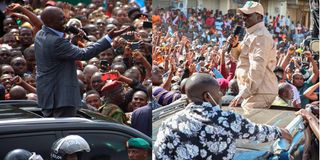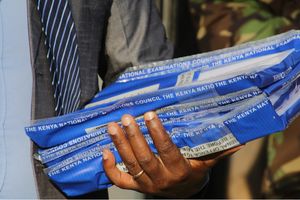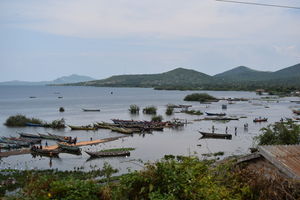Learn how to do wonderful things

President William Ruto (left) and Azimio leader Raila Odinga. We need a well-intentioned national dialogue with five items on the agenda. First is political stability.
On a long-haul flight and unable to sleep, I stumbled on Jodie Forster in the 1997 movie, Contact, based on Carl Sagan’s book—which, by the way, I have never read. It’s not the kind of movie I’d ordinarily watch, but I’m glad I did.
Dr Eleanor Arroway is an astronomer who dedicated her life to the discovery of alien life in the universe by listening to radio emissions. Her boss, David Drumlin, thinks it is all a waste of time and money and decides to cut funding and chuck her out of the facility where she works—but then, she and her colleagues are contacted by an alien civilisation.
All of a sudden, her snaky boss and some powerful figures, including sinister National Security Adviser Michael Kitz, elbow her out and become the face of a project they never believed in or supported.
Dr Arroway decodes a message from the aliens containing a blueprint for an inter-stellar machine to transport one human to their galaxy. The selection is manipulated and Judas' boss Drumlin is picked to represent humanity. But a religious terrorist bombs the machine and Drumlin buys the farm.
On the low, the US government was secretly building another machine, on which she travels to alien worlds, meets their representative and learns many wonderful things.
On return, it takes the position that she never left Earth and her story is a hoax as she came back with no physical evidence; apparently, her instruments recorded nothing but static.
She is publicly humiliated at a congressional hearing and dismissed as a crank. Interestingly, the government commits funding to her research and the nagging question persists: If she never left and if her instruments recorded only static, why were there 18 hours of it?
Behind all failure—be it innovation and research in the private and public sector, inability to grow and provide services, or economic collapse—there will always be the human factor: Thirst for publicity, recognition, money or other psychological needs trump the larger good. Even when humanity or organisations are facing grave danger, the human factor will be standing in the way of progress.
Economic collapse
I think Kenya faces a big risk of economic collapse and serious political instability. Part of the cause of the danger is external, part has to do with the human factor mentioned above and the rest are normal complications which affect countries in our situation. I don’t believe one political party has exclusive access to the wisdom required to face these challenges.
We need a well-intentioned national dialogue with five items on the agenda. First is political stability. We would all love a situation where the opposition can wait until 2027. But it is not just about power-sharing; it’s also about mobilising an increasingly sceptical public tired of endless spin and releasing its full participation in dealing with these challenges. Only a government with the enthusiastic support of the whole country will have the political courage to make the difficult decisions needed.
The second is our independence and continued existence as a nation. A war between the big nations of the world has begun. It is now economic and cultural but, in the fullness of time, it could be a shooting war. The US and Europe are fighting a proxy war against Russia in Ukraine. Russia has joined China in economically confronting the West by trying to win over the so-called developing countries and uniting them against the dollar, for example. China is actively undermining US influence in the Middle East.
Neither the US nor Europe will allow Africa to join the Chinese column. Not because they love Africa—no, many actually loathe Africans—but because we are a source of cheap minerals and cannon fodder in diplomatic and shooting proxy wars. We are back to the Cold War; expect a proliferation of newly-minted Mobutus.
Third is economic and scientific regression. Kenyans these days are rarely world beaters—even in the things we used to excel in. In the 1970s, our coffee was the best. Not any more. Our agriculture needs help. Even in computer science, where we started strong, we are losing steam.
Fourth, corruption and state capture have become the most important rationale for our politics. I always say corruption in Kenya is not more widespread and destructive than we imagine; it is worse than we can imagine. State capture is the dream of nearly every politician. If we don’t kill corruption, it will kill us.
Fifth, we need to find a formula to teach our people skills. Our education system is facing the wrong way. The Egyptians could build the pyramids thousands of years ago. Europeans could do Windsor Castle and the Sistine Chapel hundreds of years ago. We can’t do it today. We need to learn how to do wonderful things.
I have run out of space but the bottom line is: Where are the Eleanor Arroways?





